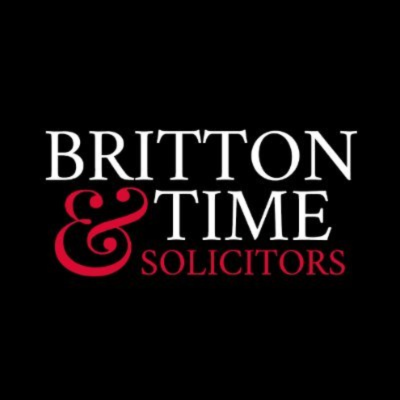Book A Consultation
What is Whistleblowing?
Whistleblowing is a brave way for workers to speak up about serious wrongdoing at work. In the UK, you’re protected by law if you report dangerous or illegal activities that could harm others. This might include discovering unsafe working conditions in a factory, noticing financial fraud in a company, or identifying environmental risks that could damage public health.
The law protects you when you shine a light on serious issues like:
- Potential criminal activities
- Dangerous workplace practices
- Financial misconduct
- Risks to public safety
- Illegal behaviour that could hurt people
Imagine a junior nurse who notices medication errors that could endanger patients, or a junior engineer who spots safety problems in construction work. These are exactly the kinds of situations where whistleblowing becomes crucial. The legal protections mean you can speak up without worrying about losing your job or being treated unfairly.
If you’ve witnessed something that doesn’t seem right, don’t stay silent. Contact us and submit a lead form, and we’ll match you with SRA-regulated solicitors who can provide expert guidance and support.
Whistleblowing Policy
A robust whistleblowing policy is essential for protecting workers who expose workplace misconduct. These policies must provide clear channels for reporting serious concerns, ensuring employees feel safe and supported when speaking up. For instance, an administrative worker discovering potential financial fraud or a laboratory technician noticing dangerous health risks would be protected under comprehensive guidelines.
Key elements include: protecting the whistleblower’s identity, establishing multiple reporting mechanisms, guaranteeing confidentiality, and outlining investigation procedures. The policy should clearly define what constitutes a protected disclosure, covering areas like criminal activity, health and safety violations, and potential environmental risks.
- Reporting channels must be accessible and transparent
- Investigations should be prompt and thorough
- Protection against workplace retaliation is crucial
- Confidentiality must be guaranteed
Understanding your rights empowers you to challenge unethical practices without fear of professional consequences. Whether you’re in healthcare, finance, or manufacturing, a strong whistleblowing policy demonstrates an organisation’s commitment to integrity and public safety.
Need expert guidance on workplace rights? Contact us and submit a lead form. We’ll match you with SRA-regulated solicitors specialising in employment law.
Why Whistleblowing Policy is Important for Employers
Creating a comprehensive whistleblowing policy provides critical advantages for organisations aiming to maintain ethical standards and protect their reputation. By establishing clear reporting mechanisms, you demonstrate a commitment to transparency and prevent potential misconduct from escalating. These policies help organisations detect and address issues early, mitigating financial and reputational risks before they become significant problems.
- Legal compliance becomes streamlined when robust reporting channels are in place
- Risk management improves through early detection of potential workplace irregularities
- Employee trust increases as staff feel empowered to speak up confidentially
- Corporate integrity is strengthened by proactively addressing ethical concerns
For instance, consider a pharmaceutical company that discovers potential clinical trial irregularities through an internal reporting system. By responding swiftly and transparently, the organisation prevents potential public health risks and demonstrates responsible corporate governance. Such proactive approaches not only protect the company but also build long-term stakeholder confidence.
Want expert guidance on developing a whistleblowing strategy? Contact us, and we'll match you with award-winning, SRA-regulated solicitors who can help you create a robust policy tailored to your organisation's needs.
Who Does Whistleblowing Apply To?
Whistleblowing protections in the UK are incredibly wide-ranging, covering virtually every type of worker imaginable. Whether you’re a full-time employee, part-time worker, agency staff, apprentice, or even a volunteer, you’re potentially protected when reporting serious workplace misconduct. For instance, consider a warehouse agency worker who discovers unsafe storage practices, or a part-time café employee who notices financial irregularities.
Key workers covered include:
- Full-time and part-time employees
- Temporary and contract workers
- Agency staff
- Apprentices
- Volunteers
- Job seekers
Your protection applies when you disclose information about critical issues like criminal activities, health risks, environmental dangers, or potential legal violations. The crucial factor is acting reasonably and in the public interest. An apprentice electrician reporting dangerous wiring or a temporary NHS worker highlighting medication errors are perfect examples of legitimate whistleblowing.
If you’ve witnessed workplace wrongdoing that could harm others, don’t stay silent. Contact us and submit a lead form, and we’ll connect you with SRA-regulated solicitors who can provide expert guidance and support.
Whistleblowing and Protected Disclosure
A protected disclosure involves reporting workplace wrongdoing that serves the public interest. UK law safeguards employees who speak up about serious misconduct, ensuring they won't face retaliation. This might include an NHS worker reporting dangerous medical practices, a banking employee exposing financial fraud, or a construction worker highlighting unsafe working conditions.
Qualifying disclosures typically involve:
- Criminal offences
- Legal violations
- Health and safety risks
- Environmental damage
- Potential miscarriages of justice
To receive protection, you must:
- Disclose information reasonably
- Believe the disclosure is substantially true
- Act in the public interest
- Report through appropriate channels
For example, an engineering apprentice discovering faulty equipment or a retail worker identifying systematic financial irregularities could make a protected disclosure. The law protects you from unfair dismissal, discrimination, or detrimental treatment.
Worried about workplace misconduct? Submit our lead form, and we'll match you with award-winning, SRA-regulated solicitors who can provide expert guidance on your rights and potential actions.
Whistleblowing and Confidentiality
UK law provides robust protection for whistleblowers who report workplace misconduct, prioritising your safety and anonymity. The legal framework ensures that when you speak up about serious wrongdoing, your identity remains confidential and protected from potential retaliation. For example, an NHS technician who discovers dangerous medical practices or a financial analyst exposing corporate fraud can report concerns without fear of personal consequences.
Key confidentiality protections include preventing employers from:
- Identifying or exposing the whistleblower
- Taking disciplinary action
- Creating a hostile work environment
The Public Interest Disclosure Act 1998 guarantees comprehensive safeguards, ensuring you can disclose critical information through appropriate channels while maintaining complete anonymity. This legal protection extends across various sectors, empowering workers to expose misconduct that could harm public safety or breach ethical standards.
If you’ve witnessed workplace wrongdoing and feel uncertain, contact us and submit a lead form. We’ll connect you with award-winning, SRA-regulated solicitors who can provide expert guidance and support your right to confidential reporting.
Related Articles

Employer Protection Guide: Whistleblowing Policies
What whistleblowing protections exist for employers in the UK? Legal requirements for whistleblowing policies Why whistleblowing is important for organisations How to encourage whistleblowing in a safe environment Book A ConsultationWhat whistleblowing policies exist...
Join Our Newsletter
Top Reasons to Choose Voluntary Redundancy
Gaining Financial Benefits From Voluntary Redundancy Opportunity For Career Change Taking Control Of Your Future Creating Work Life Balance Escape From Unsatisfying Roles Book A ConsultationGaining Financial Benefits from Voluntary Redundancy When your company...
How to Document Harassment at Work Legally
Maintain A Detailed Incident Log Collect And Organise Supporting Evidence Why Documenting Minor Incidents Matters Seek Corroboration From Witnesses Book A ConsultationMaintain a Detailed Incident Log When dealing with workplace harassment, your documentation becomes...
Holiday Entitlement While on Maternity Leave
What Is Holiday Entitlement During Maternity Leave? Can Holiday Be Used Instead Of Extending Maternity Leave? Do Public Holidays Count Towards Accrued Entitlement? How To Calculate Holiday Accrual During Maternity Leave When Can Accrued Holiday Be Taken? Carrying Over...
Taking Legal Action for Pregnancy Discrimination
What Is Pregnancy Discrimination At Work Taking Legal Action Against Pregnancy Discrimination Recognising Examples Of Pregnancy Discrimination At Work Steps To Take If You Experience Pregnancy Discrimination How Employers Can Avoid Pregnancy Discrimination Claims Book...









